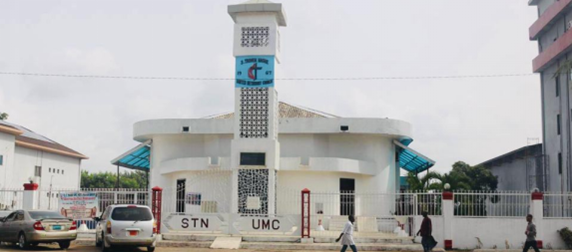The Liberia Annual Conference of the United Methodist Church (LAC/UMC) has taken decisive action to address escalating conflict and disruption within the Stephen Trowen Nagbe United Methodist Church (S.T. Nagbe UMC) in Monrovia. The Executive Committee has temporarily closed the church, effectively sealing the premises to safeguard individuals, property, and the sanctity of the worship space. This closure is a direct response to two consecutive Sundays of disruptive and hostile behavior, including the interruption of worship services and the sacrament of Holy Communion, actions deemed deeply disrespectful and contrary to the core teachings of the United Methodist Church. Pending a formal investigation by the Liberia Annual Conference, all church activities have been relocated to other United Methodist congregations within the area. The Executive Committee has emphasized the gravity of the situation, particularly given the church’s namesake, the first Liberian Bishop, Stephen Trowen Nagbe, and its proximity to the headquarters of the Liberia Annual Conference, highlighting the historical and spiritual significance of the site.
The decision to close S.T. Nagbe UMC underscores the LAC/UMC’s commitment to upholding its doctrines and maintaining order within its congregations. The recent unrest stems from ongoing debates within the broader United Methodist Church regarding same-sex marriage and related issues. The LAC/UMC, along with other African conferences, has reaffirmed its commitment to the traditional definition of marriage as a union between one man and one woman, a stance consistent with both the UMC’s Book of Discipline and Liberian national law. However, misinformation and misinterpretations of the church’s position have fueled dissent and confusion within some congregations, contributing to the escalating tensions at S.T. Nagbe UMC. This has led to confrontational behavior towards appointed pastors and attempts to align the congregation with the Global Methodist Church (GMC), a breakaway denomination formed amidst the ongoing denominational debates.
The closure of the church is intended to be a temporary measure, allowing for a period of reflection and reconciliation. The Executive Committee, led by Bishop Samuel J. Quire, Jr., has called upon all members of S.T. Nagbe UMC, especially those involved in the disruptions, to prayerfully reconsider their actions and reaffirm their commitment to the principles and governance of the United Methodist Church. During this period of closure, the Senior Pastor, in collaboration with the Monrovia District Superintendent, has been authorized to appoint interim leadership for all church auxiliaries, ensuring continuity of administrative functions. Importantly, this course of action serves as a precedent and may be implemented in other UMC congregations across Liberia experiencing similar disruptions. The Executive Committee will determine when it is appropriate to reopen the church and reinstate regular services.
The disturbances at S.T. Nagbe UMC highlight the wider struggle within the United Methodist Church regarding theological and social issues. The LAC/UMC’s firm stance on the traditional definition of marriage reflects the position of many African conferences, which have largely resisted the growing momentum for greater inclusivity in other parts of the global church. The formation of the Global Methodist Church has provided an alternative for congregations seeking to separate from the UMC over these contentious issues. The attempts by some members of S.T. Nagbe UMC to align with the GMC underscore the deep divisions within the congregation and the challenges facing the leadership of the LAC/UMC in maintaining unity and order.
The LAC/UMC’s response to the situation at S.T. Nagbe UMC illustrates its commitment to addressing conflict and upholding its doctrines. By temporarily closing the church and initiating an official investigation, the Executive Committee aims to de-escalate tensions, promote reflection, and pave the way for eventual reconciliation. The authorization to appoint interim leadership underscores the importance of maintaining continuity and providing pastoral care for the congregation during this challenging period. Furthermore, the explicit statement that similar measures may be taken in other congregations facing comparable issues signals the LAC/UMC’s resolve in upholding order and addressing disruptive behavior across its network of churches.
The events at S.T. Nagbe UMC reflect a broader trend of division and fragmentation within religious institutions grappling with evolving societal norms and theological interpretations. The LAC/UMC’s decision to temporarily close the church is a significant step in addressing this internal conflict, but it also highlights the ongoing challenges facing the denomination as it navigates complex issues and seeks to maintain unity amidst differing viewpoints. The outcome of the investigation and subsequent actions taken by the LAC/UMC will likely shape the future of S.T. Nagbe UMC and serve as a precedent for how similar situations are handled within the Liberian context and potentially beyond. The emphasis on prayer, reflection, and recommitment to the teachings of the church suggests a hope for eventual healing and reconciliation within the congregation.














